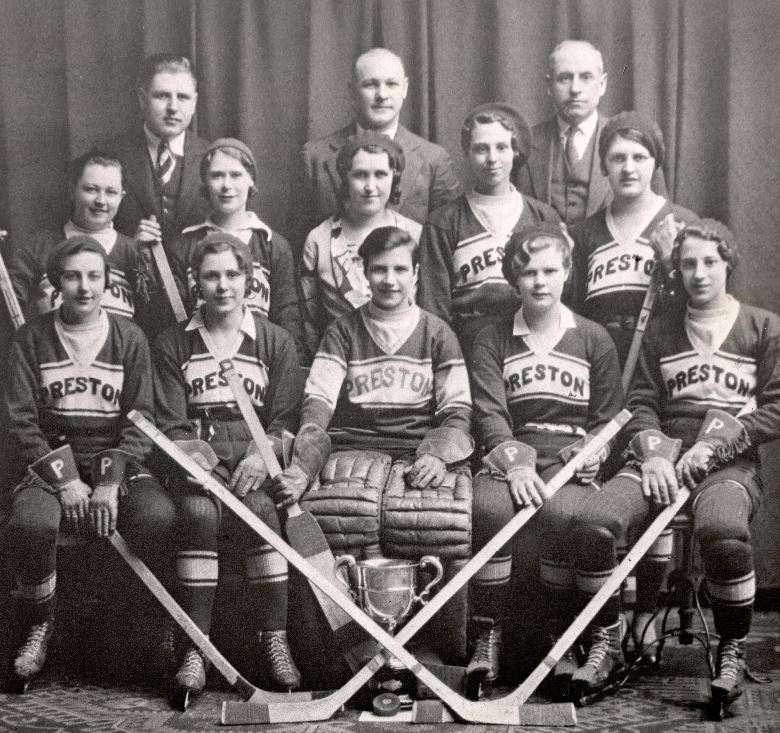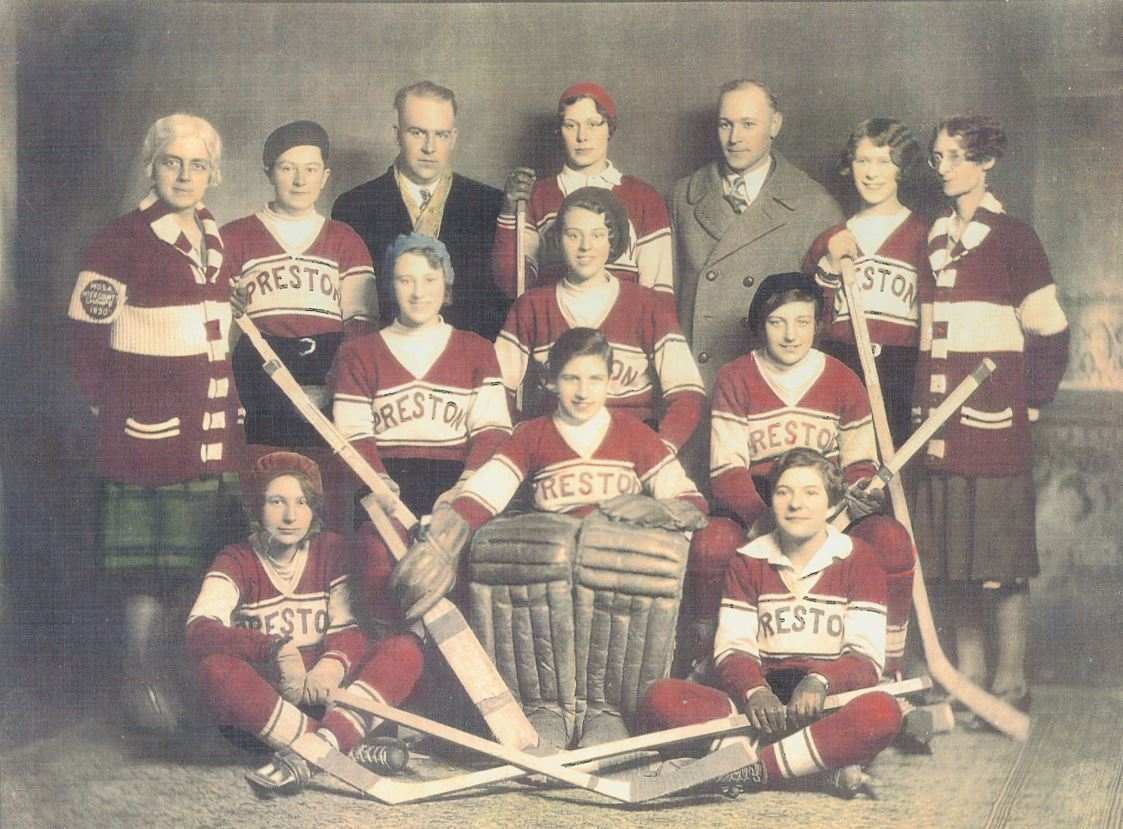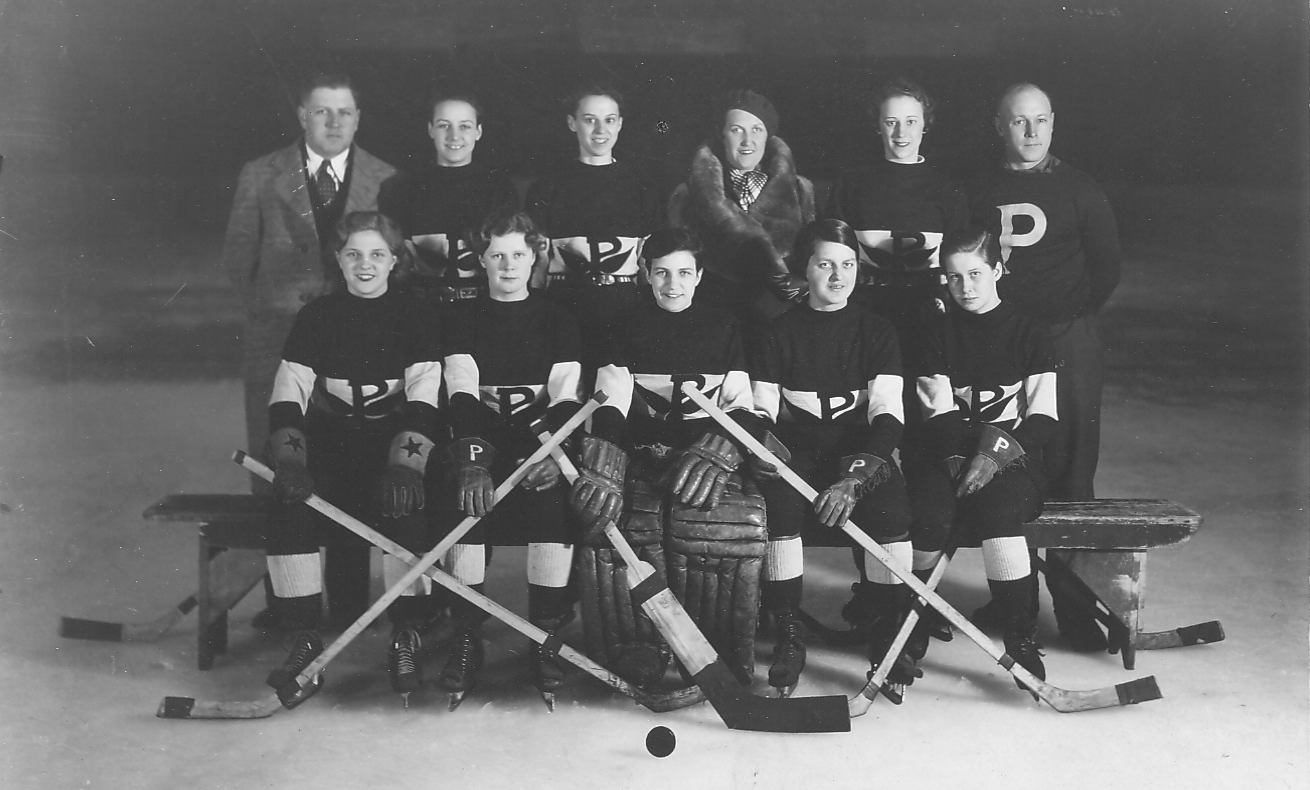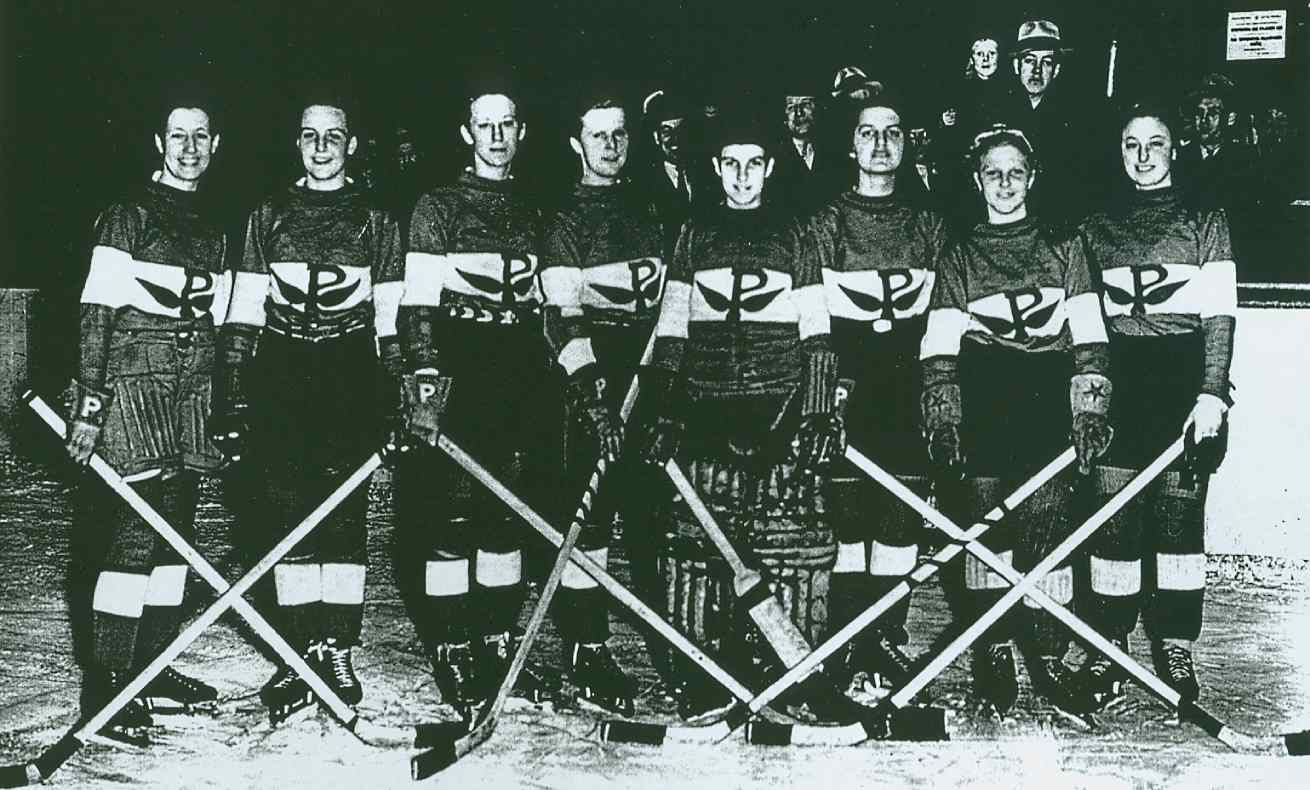Preston Rivulettes Women’s Hockey Team National Historic Event

© Courtesy of the City of Cambridge Archives / A985.071.47
The Preston Rivulettes Women’s Hockey Team was designated a national historic event in 2014.
Historical importance: Considered the most successful women’s hockey team in Canada
Commemorative plaque:1458 Hamilton Street, Cambridge, OntarioFootnote 1
Preston Rivulettes Women’s Hockey Team
Considered the most successful early women’s hockey team, the Preston Rivulettes had an almost unbelievable record of winning more than 95 percent of their games during the team’s ten-year existence. Remarkably consistent, the Rivulettes skated away with most provincial, regional, and national championships between 1931 and 1940. Led by the dynamic Hilda Ranscombe, on right-wing, they attracted large, enthusiastic crowds for a fast-paced, exciting brand of amateur hockey. These Canadian hockey legends pushed the boundaries of women’s sport, and continue to inspire and remind us of the proud history of women’s ice hockey.
Preston Rivulettes Women’s Hockey Team

© Courtesy of the City of Cambridge Archives / 2005.035.03
Formed in 1931 in the small town of Preston (now Cambridge), Ontario, the Preston Rivulettes are considered to be the most successful early women’s hockey team. During their ten-year existence, the team had an almost unbelievable record of winning more than 95 percent of their games. Despite the financial challenges of the Depression, the team attracted large, enthusiastic crowds with its fast, exciting hockey. This extraordinary amateur team serves to link the modern women’s hockey game to its proud past, and to inspire thousands of women thriving for equality in this and other sports.
In the period between the First and Second World Wars, women athletes tried new sports and enhanced the level of competition and organization in existing ones. New teams and leagues were formed and women began to form organizations to regulate and promote their sports. Still, women faced many challenges. Many Canadians disapproved of rough team sports for women. There was a widespread belief that women should participate in sports only for their health and social benefits, and refrain from serious competition. In some sports, restrictive “girls” rules were put in place and women were discouraged from engaging in aggressive behaviour or physical play.
It was within this context that the Rivulettes nonetheless flourished. In 1931, several teenaged girls from the Preston Rivulettes softball team were looking for a sport to play in the winter months. Having skated and played pick up hockey on the nearby rivers and ponds since childhood, two sets of sisters formed the Preston Rivulettes hockey team. In a period before professional, commercial hockey dominated fan and media attention, the Rivulettes attracted large, appreciative audiences, even during the Depression. Spectators were treated to fast, aggressive hockey that pushed the boundaries of women’s sport. Between 1931 and 1940, the Rivulettes won most of the provincial, regional, and national championships. The team was led by team captain Hilda Ranscombe, a dynamic right-winger renowned for her speed and skill. She was twice a finalist for “Canada’s Athlete of the Year”, known as the Lou Marsh Award.

© Courtesy of the City of Cambridge Archives / A987.227.02

© Courtesy of the City of Cambridge Archives / 2005.035.04
When the Second World War came, the added pressure on facilities by the armed forces, forced the team to disband. Women’s hockey and other team sports did not enjoy the post-war revival that men’s sports did. In the 1960s, however, there was resurgence of interest in women’s hockey and the sport grew with the establishment of international competition, especially when it became an Olympic sport in 1998. The Preston Rivulettes are Canadian hockey legends, and continue to inspire and remind us of the proud history of women’s ice hockey.
Backgrounder last update: 2017-12-20
The National Program of Historical Commemoration relies on the participation of Canadians in the identification of places, events and persons of national historic significance. Any member of the public can nominate a topic for consideration by the Historic Sites and Monuments Board of Canada.
Related links
- Date modified :